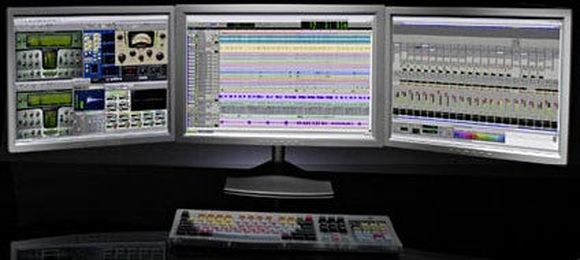4. DSP Advantages
Its important to understand that DSP accelerators use proprietary, specialised software. Unfortunately, they are not, as most people would like, able to run standard host based plug-ins - you cant simply drop a DSP card into your computer and have it take the load off the CPU by taking care of all the effects it was running. DSP accelerators run their own plug-ins, specially written, which only function with that specific hardware. This may sound like a disadvantage, but in fact, as the DSP accelerator is a completely known piece of hardware - unlike computers which can contain components from any number of manufacturers - it allows plug-in developers to produce very high quality effects that are guaranteed to run at all times and on all computers. Strong copy protection is also easier to implement, giving developers the confidence to bring niche products to market that might not otherwise be viable. The problem with host-based effects is that as just mentioned, computer hardware is so varied. Few people are actually using the very fastest computers available, and so in order to have big enough market potential, plug-ins need to be able to run across a range of computer specifications, and this inevitably brings compromises. Any given model of DSP accelerator is exactly the same every time though, and so the power of the DSP and the number of plug-ins it can run simultaneously is known. This is vital in a professional environment where you will want your best plug-ins available to you at all times, regardless of the complexity of the project youre working on.

The quality of the plug-ins available on DSP accelerators are just as good and often better than the effects found in professional outboard gear. In fact, some manufacturers such as TC Electronic use the same algorithms in their DSP based plug-ins as in their high-end hardware units, giving you truly professional signal-processing in your computer.


